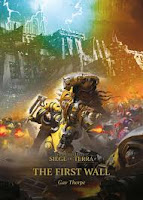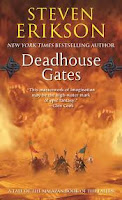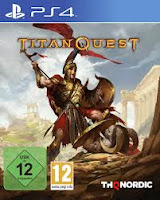A decade ago, the Library of America released the set Nine Classic Science Fiction Novels of the 1950s. The series was edited, or perhaps more accurately, curated by Gary Wolfe. Wolfe is a genre personage who I often disagree with, but a person who I respect, particularly his knowledge of 20th century science fiction. Wolfe is a proper scholar and a person to be trusted when looking to curate such a series. Nevertheless, differences in opinion there are, and it's in those differences that my views have been percolating for ten years, waiting until I've read enough sf from the 50s to have an informed rebuttal. With more than thirty-five novels from the decade under my belt (and this post sitting in my drafts folder for all that time) I think I've reached that point. In the very least I will introduce you to some old school science fiction that perhaps wasn't on your radar before.
For a bit of historical context, the 1950s was the time science fiction made itself respectable in the US. Writers like H.G. Wells, Aldous Huxley, Olaf Stapledon and others had been writing a more literary style of science fiction for decades, but they were based in Europe. (Yes, you Brits, you are European.) To that point America had almost exclusively driven down the road with signposts like: damsels in distress, men in tight jumpsuits, slavering aliens, laser blasters, and Pulp Ahead! A difficult era to take seriously (save for collectors and connoisseurs, natch), the Golden Age of scientifiction in the US is stinky cheese at its worst and fun escapism at its best. It took writers like Ray Bradbury, James Blish, Theodore Sturgeon, Alfred Bester and several others in the 50s to inject the genre with a bit of rigor and raise standards—to comb the genre's hair, brush it's teeth, put on clean clothes, and teach it a little etiquette. In real terms, this meant improving technique, cleaning up syntax and diction, interweaving metaphor and theme with plot, device, and character, etc. They pioneered what most now refer to as the Silver Age of science fiction.










